Tuesday Feb 24, 2026
Tuesday Feb 24, 2026
Friday, 5 April 2019 00:00 - - {{hitsCtrl.values.hits}}
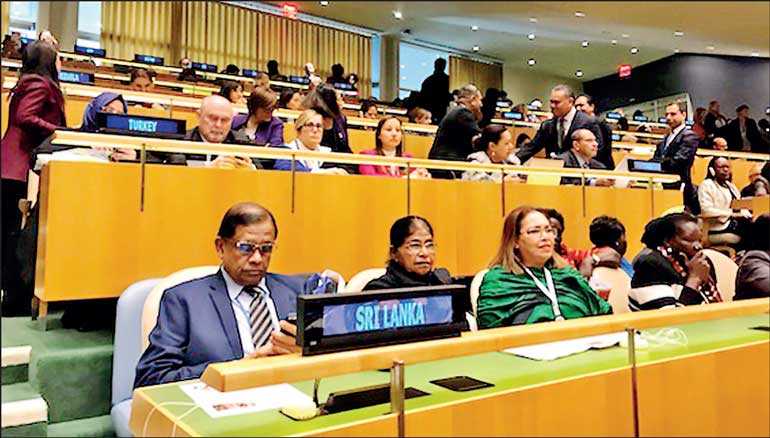
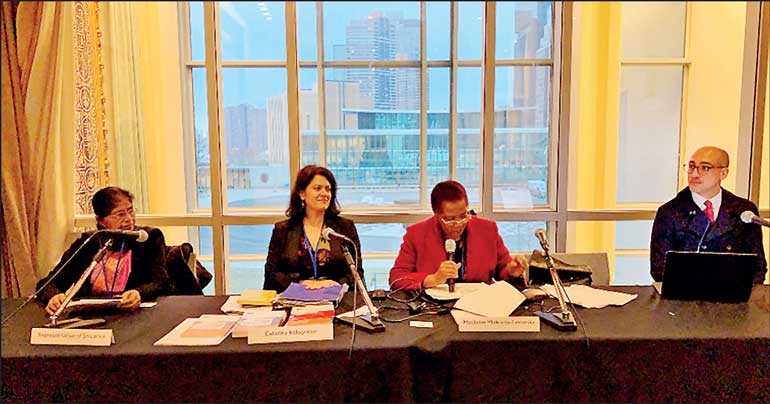
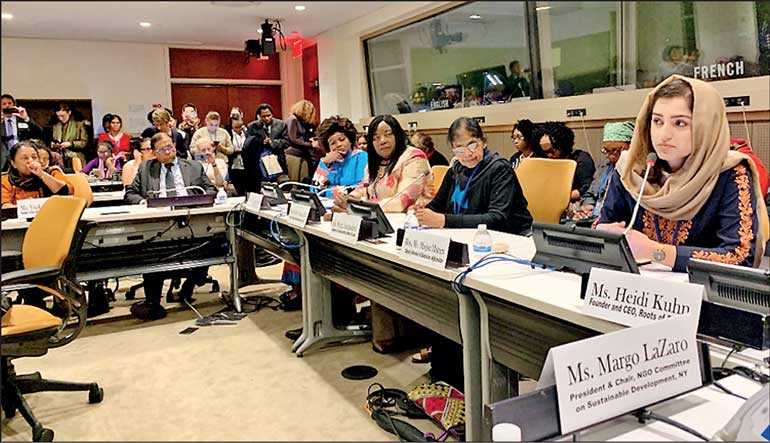
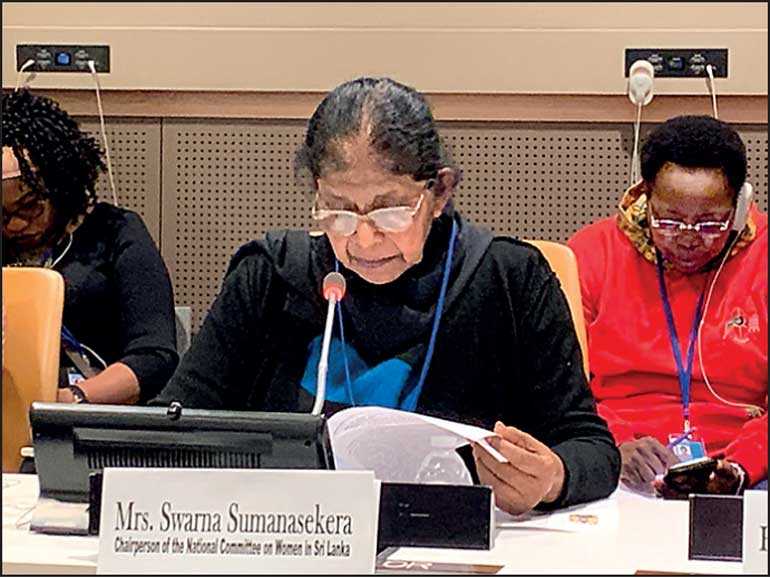
Ambassador and Permanent Representative Dr. Amrith Rohan Perera, speaking during the Sixty-Third Session of the Commission on the Status of Women, noted that in the past four years, the Government has accelerated the implementation of its programs, policies and action plans to promote gender equality.
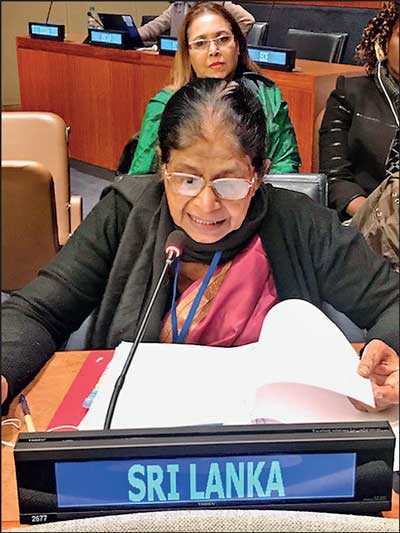 |
Mrs. Swarna Sumamanasekera, Chairperson, National Committee on Women, delivers Sri Lanka’s intervention at the Ministerial Roundtable titled “Good practices in the provision of social protection, public services, and sustainable infrastructure |
Dr. Perera, delivering the country statement at the United Nations General Assembly in New York, further said that “a National Women’s Policy was being drafted to promote gender equality and to protect women’s rights, providing an overarching framework for guiding further developmental policies and strategic interventions.”
The Sixty-third Session of the Committee on the Status of Women (CSW) saw large number of delegates representing states, UN entities and civil society from around the world meet at the UN headquarters in New York over two weeks from 11-22 March. The annual deliberations concluded last Friday after days of intense dialogue, and with the adoption of the Agreed Conclusions. The outcome document adopted by Member States puts forth concrete measures to bolster the voice, agency and leadership of women and girls as beneficiaries and users of social protection systems, public services and sustainable infrastructure.
Sri Lanka’s delegation to the CSW this year was headed by Ambassador Dr. Rohan Perera and included National Committee for Women in Sri Lanka (NCW) Chairperson Swarna Sumanasekera, Deputy Permanent Representative Satya Rodrigo, and Permanent Mission of Sri Lanka to the UN in New York Minister Sonali Samarasinghe.
Sri Lanka also participated in the Ministerial Round Table titled “Good Practices in the provision of social protection, public services and sustainable infrastructure, including for recognising and valuing unpaid care and domestic work.”
Representing Women and Child Affairs Minister Chandrani Bandara the Ministerial Round Table, NCW Chairperson Swarna Sumanasekera noted that in Sri Lanka, a wide range of social protection programs have promoted growth with equity, and covered such areas as employment promotion and protection, social security insurance and safety nets.
The Permanent Mission also organised, co-sponsored and participated in four side events focused on areas of priority for Sri Lanka. These side events were very well attended and received.
In his welcome address at an event titled “How can infrastructure better contribute to the achievement of SDG 5”, Ambassador Perera noted that Sri Lanka was mindful that infrastructure was not a gender neutral entity and must be approached by considering the needs of women at all stages of its planning and development. Sumanasekera, speaking as a panellist, focused on water supply, the energy sector, and the transport system as three sectors contributing to overall development, and noted that these sectors benefit unpaid care workers and domestic workers who comprise 53% of the female population. The event was co-hosted by the Permanent Mission of Sri Lanka in collaboration with the Permanent Mission of Estonia, the United Nations Office for Project Services (UNOPS) and Swedish International Development Cooperation Agency (SIDA).
Sri Lanka further participated as one of three panellists at a side event organised by the Commonwealth Secretariat titled “Universal health care as a pillar of social protection and gender equality”. Sumanasekera, noting that education and health are inextricably linked, said that “Women in Sri Lanka were the co-architects of Sri Lanka’s post-Independence welfare state, which ensured free public healthcare and free education for generations of Sri Lanka citizens.”
In an event titled “The role of parliaments as partners in women, peace and security: experiences from the global project,” Sumanasekera speaking on behalf of Women and Child Affairs Minister Chandrani Bandara said that in December 2015, Parliament established sectoral oversight Committees and several other important committees to support the government to advance the WPS agenda in the country. The event was co-hosted by the Permanent Mission of Sri Lanka together with Norway, Canada, the United Nations Development Program (UNDP) and the International Civil Society Action Network (ICAN).
The Permanent Mission also co-hosted with Kenya and the NGO Committee for Sustainable Development-NY an event titled “Women Investing in Peace.” Welcoming the large gathering Permanent Representative Ambassador Perera stated: “It does not suffice that women are present at the peace table merely to satisfy a superficial gender balance component or to check a box on a management reform achievements sheet. Women must be given the space to truly engage both at the peace table and beyond – and at all levels – as leaders, researchers, workers, pen holders and change markers.”
Additionally, Swarna Sumanasekera participated at the Annual Consultation of National Women’s Machineries of Commonwealth Countries to prepare for national and regional reporting for gender equality and women’s empowerment in the Commonwealth towards the full realisation of the 2030 agenda.